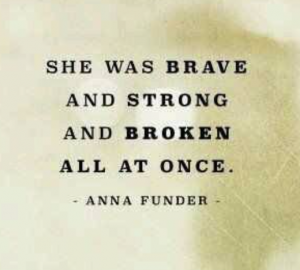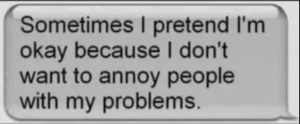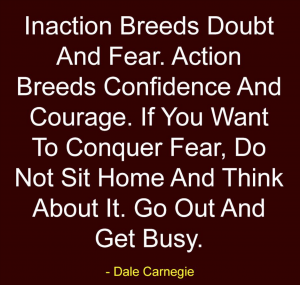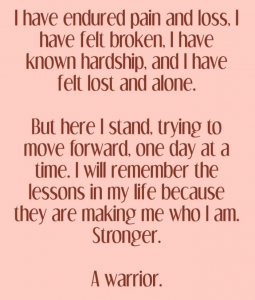Treatment
How Can I Manage My Experience with Professional Help?
If you think you might be depressed – or have a friend who might be depressed – act. Be the author and get professional help. Don’t wait because there is no reason to suffer needlessly and one of the keys to success in life is getting the right help when you need it.
It’s not a sign of weakness – it’s about exerting power to manage your life. It’s about being the author vs. being a victim. Symptoms of depression don’t usually get better by themselves and often get worse. Except for instances of very mild depression, professional help in some form needs to be pursued.

The good news is that a large majority of teenagers who seek professional help find success. That professional help usually comes through counseling/therapy or a combination of counseling/therapy and medications (which are safe). The key is to find the professional(s) who are a good fit with you. The challenge with medications is to find the right medication in the right dose.
There are parts in this section. Part One looks at steps in managing your treatment and Part Two looks at type of treatment for depression.
Part One: Steps in Managing Your Treatment
There are a few straightforward steps to take in managing the professional help that can support you in fighting your depression. These are steps that adults would take, not children, so you will be accelerating your journey to young adulthood even when dealing with a diminishing condition. It’s truly being the author – in the face of a tough opponent.
1. Talk to a trusted adult. This can be a parent, extended family member, neighbor, teacher, counselor coach, faith community leader, etc. It also helps to talk with friends, but not as a substitute for talking with a trusted adult.

2. See your physician for a check-up. This is to rule out and physical issues and rule out complicating factors. Your physician may also have some wise advice and be able to refer you to other professionals or groups.
3. Find the counselor/therapist that is a good fit for you. This may take a couple of attempts because this is an important relationship and relationships require the right “fit.” If you have been referred to a medical professional for possible medications, such as a psychiatrist, this will be another relationship that requires the right “fit.” The other relationship that is important is the relationship between the professionals with whom you work. This is to ensure that they work well together for you.
All of these professionals will work with you to assess what’s going on and how to deal with it – your treatment plan (or game plan or battle plan – however you want to think about it).
4. Work with your professionals and “help them help you.” You are the central player in this effort, so collaborate with your professionals to co-manage the experience. They aren’t there to “fix” you through some process or medication. They are there to bring their particular expertise to bear and support you.
Follow the plan you create and be honest about your experience. There is no specific map for dealing with depression, so you and your supporters will “learn the way” as you go down the path and keep making decisions about the best way to proceed.
Note. There will be times when you get tired of following your plan and battling your depression, so be ready for those times and be ready to push through them. And, if you do wander off the path, just get back on it as soon as you can and don’t beat yourself up for not staying on the path perfectly.
Your family, friends and other trusted adults will also have roles to play, so work with them to get the most out of that support. Your parents will most likely be involved to varying degrees with your professionals as part of your web of support.
Expect trouble as an inevitable part of life, and when it comes, hold your head high, look it squarely in the eye and say, "I will be bigger than you. You cannot defeat me.
Ann
Landers
5. Do what you can do to manage your depression. Part of beating depression is working to get into the author role and you can do that by being the central player in your treatment and by taking life-style actions that are within your power (see the “Helping” section for specifics). Because you are depressed, you probably won’t feel like doing much – particularly in the beginning of treatment – but it’s important to act even if you don’t feel like it or have much energy. Even the little actions help.

Part Two – Treatment for Depression
The first step is “diagnosis” – basically, “What’s going on?” Based on the diagnosis a treatment plan can then be crafted to fit your specific situation.
Diagnosis
A good diagnosis will usually have a physical assessment and a psychological/social assessment in order to match the factors that contribute to depression.
Physical Assessment. A physical will rule out any relevant medical conditions or factors that might be affecting your depression. Depression is a medical/psychological/social condition, so it’s important to know what’s going on physically.
Psychological/Social Assessment. Interviews are usually conducted with you, your family and possibly others. Interviews differ, but they will focus on understanding how you are experiencing life and that will include a lot of the symptoms listed in the Symptoms” section. What is going well in your life will also be a focus.
Based on these assessments your professionals will be able to assess the nature and severity of your depression. They will talk with you about their assessment and make recommendations to you and your family about the possible paths of treatment.
Mental health problems don't define who you are. They are something you experience. You walk in the rain and you feel the rain, but importantly. YOU ARE NOT THE RAIN.
Matt
Haig
Types of Treatment
Treatment can come in a number of forms and needs to be crafted to fit you and the nature and severity of your depression.
Psychotherapy. Psychotherapy involves talking in a safe environment with an experienced professional about your thoughts, feeling and behaviors – what you’re experiencing. It is safe in that the setting is safe and you will not be judged. It helps you understand yourself and your world and can also involve problem solving to help manage your experience.
Usually you will be in individual therapy, although sometimes group therapy with people your own age is a good path to follow. In some instances family therapy will be recommended, where the therapist meets with you and your parents or your whole family. These approaches can be combined and may vary over time.
Medication. Beyond mild depression, medication is often called for. It has been found to be safe and effective for teenagers and should be managed, not feared. Medication does not take the place of psychotherapy, but it may be an essential complement.
Medication is designed to reduce the debilitating symptoms of depression, so that you can get out from under them in order to recover. It can “get you in the game” by taking some of the weight off of you – giving you room to breathe and move.
The key is finding the right medication and the right dose – for you. That sometimes takes some careful experimenting and that can be frustrating, because there are a bunch of possibilities and it can sometimes take as long as 4-6 weeks to really understand how well the medication is working.
Medication can also have side effects – usually mild – and those also need to be tracked. If side effects become intense – or just worrisome – contact your professionals immediately.
It’s important to work closely with the professionals involved to figure out the best path so that the medication works for you. Part of that is following the instructions carefully and part of it is communicating your experience so that your professionals know what’s going on and can make the best decisions with you. It’s really a team effort, which is one reason why it’s important for any professionals working with you to be in touch and aligned on your treatment plan and experience.
In all cases it is important that you feel OK with your professionals. You probably won’t always feel completely comfortable because you are on a tough journey and your professionals will sometimes push you harder or in ways that you may resist – but you do need to feel that you can work with the team you have. They aren’t supposed to be your friends, but you do need to be able to work with them. You will know in a few sessions. If it’s not a good fit, look to make a change.
One warning about changing. If you find that you are changing more than once or twice it is probably not a matter of “fit.” It’s probably because you are rejecting the help and that can be dangerous.

Day Treatment and Residential. In severe cases of depression a residential stay or day treatment (come for the day, but live at home) may be called for. That is rare, but important to have as an option in severe depression. In a crisis, particularly suicide attempts or high risk, a residential stay may be needed initially to provide the support and safety required.
Online Treatment. This is changing rapidly, so it may take some surfing of the internet to understand the latest offerings. Sites like Very Well Mind are a good place to start: Very Well Mind
Complementary and Alternative Medicine (CAM). This is also called “integrative medicine.” “Integrative” is the key term because any of these approaches needs to be integrated with the other parts of your treatment plan. CAM refers to such approaches as yoga, meditation, dietary supplements, exercise, massage, guided imagery and the broad category of naturopathic medicine.
Studies of the effectiveness of CAM are inconclusive, but should not discourage you from exploring them to see if some can be integrated into your treatment plan – talk with your professionals to do that.
Parents, Friends and Other Trusted Adults. Their role is critical and focuses on being patient, supportive and encouraging. It is also to challenge you when you waver – and you will waver at times. Beating depression is not easy and it’s not quick, so support and encouragement – and sometimes challenge – is critical.
It is this web of professionals, parents, friends and other trusted adults that makes the difference – with you playing you part in the center of the web.
So, accept the challenge to be the author and grow as you take on your depression.
- Commit to yourself;
- Build your web of support; and
- Call on your courage, perseverance and resilience.
I am not a courageous person by nature. I have simply discovered that, at certain key moments in this life, you must find courage in yourself, in order to move forward and live. It is like a muscle and it must be exercised, first a little, and then more and more. All the really exciting things possible during the course of a lifetime require a little more courage than we currently have. A deep breath and a leap.
John Patrick
Shanley